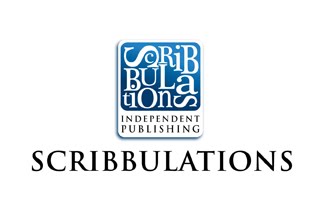Having now past the launch of my first book, my next task is two-fold. I need to market the book and myself to a broader audience and gather critical feedback from them. The first task is fairly straightforward - introduce a treasured creative effort to people in an appealing way. I find that most people like to meet people who have finished creative projects and can usually spare a little time to admire the fruits of your efforts. However, critical review and response is, by its nature, something people are reluctant to dispense. It is far safer in creative circles to be either unassuming or silent, and other times people are afraid of 'sounding stupid' even though nearly every opinion is an extension of truth.
It might not seem so, but criticism is a cultural taboo. Praise is always welcome but digging into someone else's work, especially when they often have no way to change it, seems unfair, and fans of their work won't appreciate your analysis unless you are clever. I found this out the hard way, as my first few reviews on Amazon were consistently and repeatedly marked as unhelpful and some of them were even trolled by the ungrateful.
I encourage everyone to be critical despite the stigma. Being a critic is an intellectual legacy we all share. Often, whether or not you are considered a good critic has to do with your delivery and when it is done well, criticism is very helpful. The most successful critics I know, either in how they help me refine my work or in their coverage in respected journals, are consistent in a few general ways. Incidentally, when you read criticism of your work, it's good to look for these signs to identify someone who has a true stake in your chosen art-form:
- They convey experience and informed perspective. This might seem textbook, but a good critic can connect different things together for comparison and distinguish differences. This sometimes produce unflattering comparisons, but a critic's perspective is revealed by their sources. This also informs you of the caliber they ascribe to your work.
- They don't skimp on specifics. Even if a critic only talks about their enjoyment or dislike of a piece of work, they can point to specific parts that evoked a reaction, or did not. Surely, each part is not as important as the whole, but reductive glosses and generalizations are not very critical, whereas close reading is.
- They state very clearly what something is. Often, art resists clear definition. This can stem from its subjects, its style, its context, its delivery, or a myriad of more subtle factors. A good critic can identify the essence of a piece and at least one clear purpose for its existence. This takes some practice and usually a good vocabulary, but knowing what you are talking about and informing others is a fundamental function of the critic. A review is helpful if it makes some clear statement about what is being reviewed.
In conclusion, be critical, but when you speak or write critically, consider the important things critics can provide. If you have friends who have finished their own creative projects, try to review their work as this helps them in the long run, even if your opinion of the work is not high.
- Forest F. White

No comments:
Post a Comment